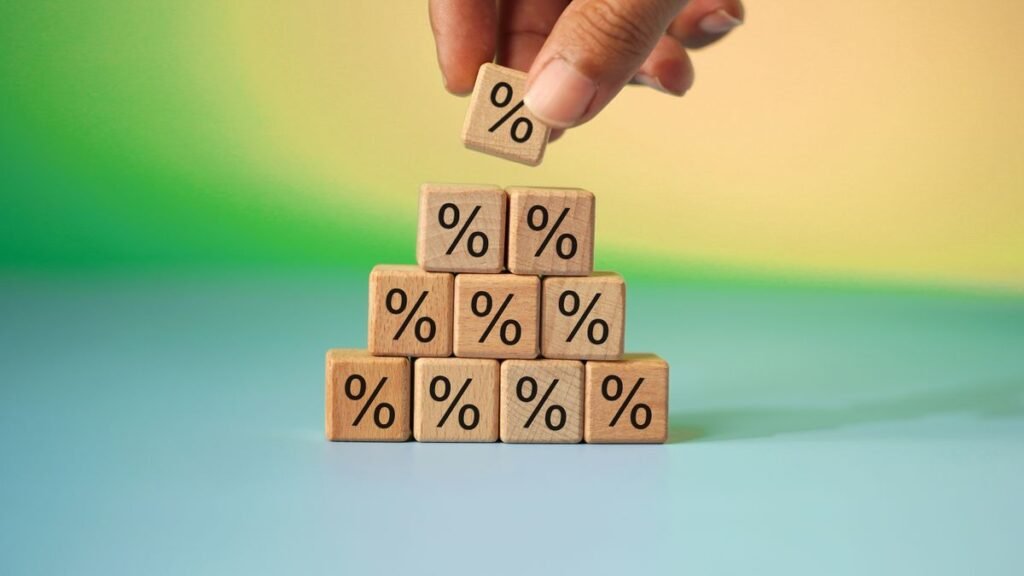There’s a well-known saying that compound interest is the “eighth wonder of the world.” While the quote’s origins are debated, the power of compound interest is undeniable. It can transform modest savings into significant wealth over time.
The key is understanding how it works and how to maximize its potential to build financial security.
What is compound interest?
Compound interest is the process of earning interest on both the money you initially invest (the principal) and the accumulated interest from previous periods. Unlike simple interest, which is calculated only on the principal, compound interest allows your money to grow exponentially.
Sign up for Kiplinger’s Free E-Newsletters
Profit and prosper with the best of expert advice on investing, taxes, retirement, personal finance and more – straight to your e-mail.
Profit and prosper with the best of expert advice – straight to your e-mail.
For example, if you invest $1,000 at an annual interest rate of 8% and let it compound yearly, you’ll earn $80 in interest after the first year.
The next year, interest is calculated not just on your initial $1,000 but also on the $80 interest from the first year — bringing your total to $1,166.40 in two years.
Over decades, this snowball effect can turn small contributions into a sizable fortune.
Why time is your greatest asset
The magic of compound interest lies in time. The earlier you start, the greater the impact. Consider two investors:
Investor A starts at age 25 and invests $200 per month until age 65, earning 8% annually.
Investor B waits until age 35 and invests the same $200 per month until age 65 at the same rate.
By retirement, Investor A will have accumulated about $698,000, while Investor B will have about $298,000 — even though both contributed the same monthly amount and Investor A got only a 10-year headstart.
This staggering difference demonstrates that starting early is more important than investing large sums.
How to maximize the benefits of compound interest
Start as early as possible. Even if you can only invest a small amount, begin now. The longer your money compounds, the greater your final balance will be.
Contribute consistently. Automate contributions to your retirement or investment accounts to ensure you regularly add funds. This habit minimizes the temptation to spend and ensures long-term growth.
Take advantage of tax-advantaged accounts. Accounts like 401(k)s, IRAs and Roth IRAs allow tax-free or tax-deferred growth, supercharging the effects of compound interest. If your employer offers a 401(k) match, take full advantage — it’s essentially free money.
Choose investments wisely. Historically, broad market index funds (like the S&P 500) have provided average returns of around 8% annually. Choosing investments with strong, long-term growth potential can maximize compounding.
Reinvest your earnings. Rather than withdrawing dividends or interest, reinvest them. This keeps your money working for you and accelerates compounding.
The Rule of 72: A quick way to estimate growth
The Rule of 72 is a simple formula to estimate how long it will take for your investment to double. Just divide 72 by your annual interest rate.
For example:
- At 8% interest, your money will double in nine years (72 ÷ 8 = 9)
- At 6% interest, it will take 12 years to double
This rule underscores the importance of securing higher returns and reinvesting earnings to compound wealth faster.
How compound interest can build real wealth
Let’s illustrate with a real-world example:
- If you invest $500 per month from age 25 to 65 at an 8% return, you will have around $1.7 million by 65. You would have contributed just $240,000 of that amount.
- If you wait until age 35 to start investing the same monthly amount till age 65, you’ll end up with only about $745,000. Granted, you would have put away only $180,000. But what option would you rather do?
This difference highlights how even small investments, given enough time, can result in life-changing sums.
The best time to start is now
Many people think wealth building requires large salaries or big investments, but compound interest rewards consistency and patience over time. Whether you’re starting with $50 or $500 per month, the key is to start and stay committed.
The sooner you begin, the more you can harness this powerful financial force — turning small investments into a future of financial freedom.
Related Content
The information provided here is not investment, tax or financial advice. You should consult with a licensed professional for advice concerning your specific situation.

